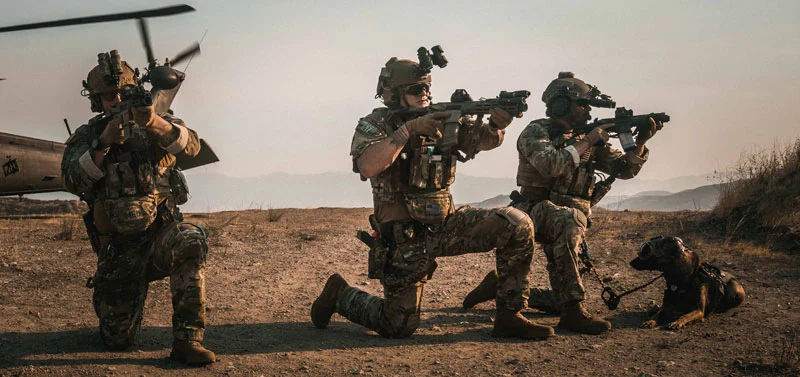Body Armor And Self-Defense: Ethics for Civilians

In a society where individual security is continuously increasing, most civilians opt for body armor as a form of self-defense to protect themselves. Although body armor offers added protection, its use raises significant ethical issues. This blog will discuss the moral implications of civilians using body armor for self-defense and its effects on society.
Why Are Civilians Turning To Body Armor?
As safety concerns rise, people seek more advanced ways to protect themselves. Once exclusive to law enforcement and military personnel, body armor has become a viable option for civilians. However, the question arises: Is it ethical for non-professionals to wear bulletproof vests and other protective gear?
For most, body armor appears to be a rational investment, but its application has wider societal implications. Let’s discuss how this protective equipment affects individual and public safety.
1. The Increasing Demand For Protection
As there is a growing risk of violence, several civilians are trying to find body armor so they feel safer. Others regard body armor as necessary because of crime-infested neighborhoods or other personal risk indicators. The fact that more and more people use it demands examining its presence in everyday life and whether it triggers irrational fear.
2. Necessity In Dangerous Situations
Although body armor can provide a great deal of protection during risky situations, it is worth considering whether the threats you encounter are worth wearing. Not everyone lives in areas where body armor must be worn, so knowing when and why you need it is key to making an ethical choice.
The Fine Line Between Self-Defense And Escalation
Body armor can enhance personal security, but its use might also escalate violent situations. Should civilians be armed with protective gear, or is there a risk of triggering more aggressive behavior?
1. The Potential to Escalate Violence
Others believe that civilians’ mass use of body armor might heighten the ferocity. Armed criminals might feel the need to employ more deadly force, knowing their victims are shielded. This might form a vicious cycle where body armor acts as a trigger for more aggressive reactions in violent encounters.
2. The Risk of Overconfidence
Wearing body armor could make one overconfident and feel like they are invincible, thus encouraging one to take dangerous risks. Ethical self-defense is not merely about physical defense but also about using good judgment and informed decision-making when and how to defend oneself.
The Legal Body Armor Limits: What’s Allowed And What’s Not?

In most places, body armor is legal for civilians, but tight regulations control its use. Knowledge of the laws and new legislation regarding body armor is critical for civilians contemplating using it.
Let’s review the law and see what regulations apply to civilian body armor.
1. Legal Restrictions and Considerations
Though body armor is legal in most locations, there are limits on who may wear it. For instance, convicted felons are generally banned from owning body armor. Some areas also have laws prohibiting body armor for criminal purposes. Civilians must be aware of what is allowed in their places before deciding.
2. Responsible Ownership: A Legal Obligation
Possessing body armor is a legal obligation. Wearing it during criminal activity can have harsh consequences in most jurisdictions. Ethical body armor use requires individuals to uphold these regulations and ensure they employ the equipment for its specified purpose—personal safety.
The Economic And Social Impact Of Body Armor
Access to body armor might cause society to split in two, between the haves and the have-nots. When more civilians use body armor, the larger social implications must be considered.
1. The Divide: Access to Protection
Body armor may be expensive, and it is not an option for everybody. This develops a social rift in which just a few individuals can utilize this protection, possibly fueling inequality. This divide might affect societal perceptions of safety and fairness.
2. Exploiting Fear for Profit?
As the demand for body armor increases, so does the market. Some producers might exploit public fears to make money from selling protective equipment. This creates an ethical dilemma regarding whether corporations cash in on insecurity or offer a valuable service.
Striking a Balance: Responsible Use Of Body Armor
The moral application of body armor needs to be considered with great care. It’s important to balance one’s safety with that of society and make sure that choosing to wear body armor is done responsibly.
We can discuss how civilians can ethically make this choice and employ body armor.
1. Educating Yourself: Legal and Ethical Implications
Before buying body armor, citizens must know the legal and ethical implications. Talking to experts or local officials can help explain how to use the equipment responsibly. Knowing the larger impact of wearing body armor will enable a person to make an informed choice.
2. Training and Preparedness: More Than Just Gear
Body armor should not be regarded as a replacement for good self-defense training. Besides wearing protective equipment, civilians must invest in self-defense courses, acquire conflict resolution skills, and remain alert in their everyday existence. Real self-defense is based on preparedness, not mere physical protection.
Conclusion: The Ethics of Body Armor in Civilian Life
Body armor provides additional protection in hostile environments, yet its utilization has ethical implications for personal responsibility, public safety, and society. As much as civilians are entitled to defend themselves, it is imperative to consider the general consequences of body armor and its potential impact on society. The balance lies between personal protection and the ethical duty of utilizing equipment that works for all.
Frequently Asked Questions
Is body armor legal for civilians to wear?
Yes, it is legal for civilians to own and wear body armor in most countries, including the United States. However, there can be restrictions depending on local laws, such as prohibiting felons from owning it.
Could wearing body armor increase the chance of my being targeted?
Not necessarily, but it can affect how other people view you. Body armor could give the wrong impression that you anticipate being attacked, making some situations tense.
What are some body armor alternatives for self-defense?
Body armor alternatives include non-lethal weapons such as pepper spray or tasers, situational awareness training, and self-defense maneuvers, often providing the protection needed in dangerous situations.

